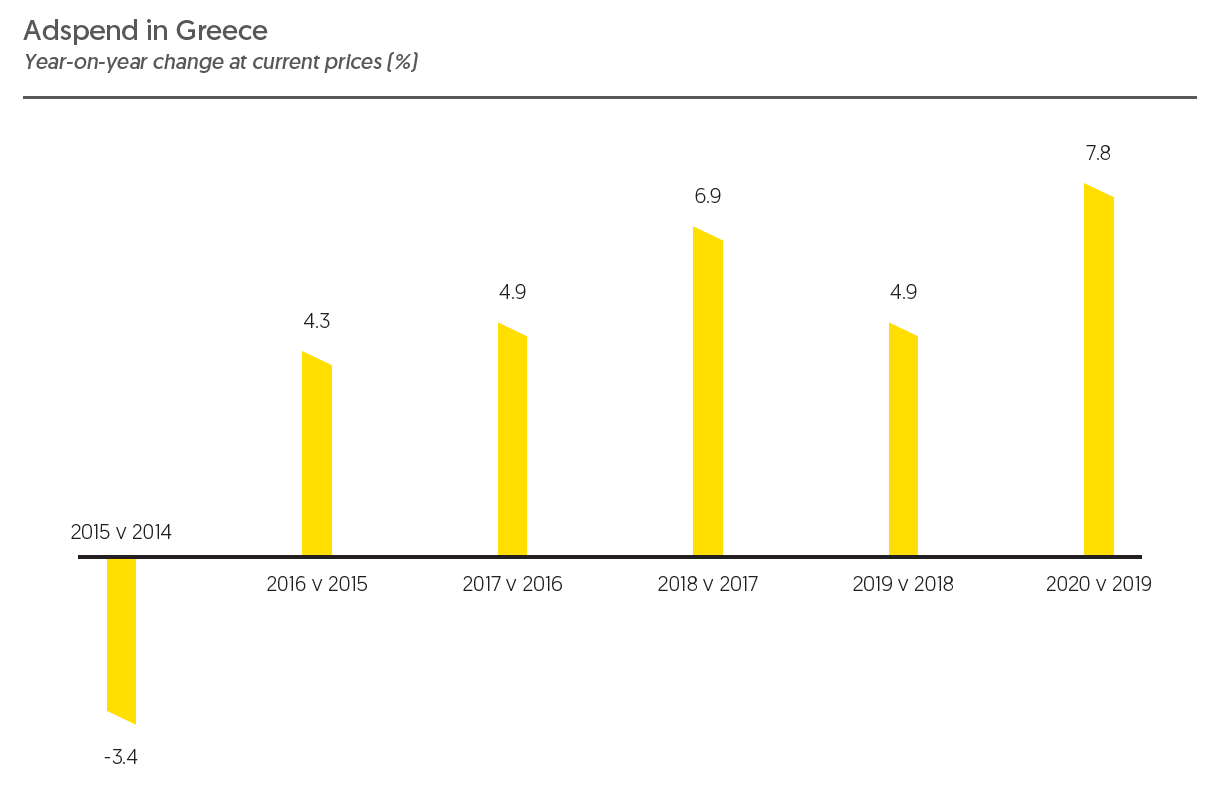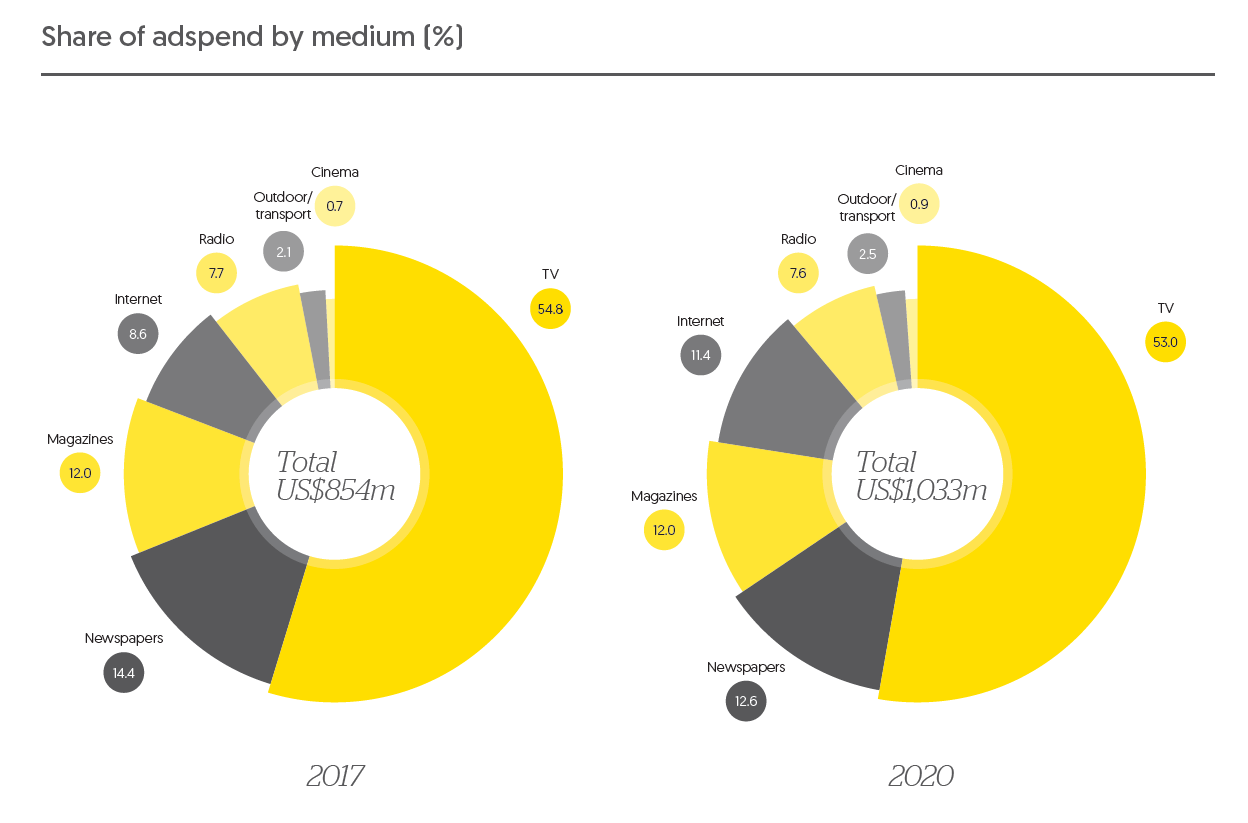Greece was one of the ad markets that suffered the most after the 2008 financial crisis. Following its emergence from the bailout programme in August 2018, signs are positive for the next few years.
Greece’s economy has started showing signs of recovery. The IMF reports that the economy grew 1.4% in 2017, representing the first year of substantial growth for a decade; it expects another 2.0% growth in 2018. Consumer confidence continues to fluctuate, but the business
confidence index is expected to reach 105 by the end of this quarter, continuing the increasing trend of the last year. Unemployment is trending downwards and is expected to fall below 20% in Q3 for the first time in six years.
We have seen small decreases in adspend over the past three quarters, but we think spend for the market as a whole will grow by 6.9% in 2018. We are forecasting further growth of 4.9% and 7.8% in 2019 and 2020 respectively.

The current government has introduced a new regulatory structure for television broadcasting. It conducted an auction for up to seven broadcasting licences in early 2018, with six initial bidders starting at €35 million each, and five broadcasters being awarded temporary DTT licences in May 2018. Another auction for specialist channels is expected at the end of the year.
After several years of broadcasting low-quality programmes during the recession, channels invested heavily in new programmes for the 2017-18 season. After the success of its show Survivor last year, SKAI launched Survivor 2 in January 2018 to large audiences, although the second season ended up doing not quite as well as the first.
From October 2018, ETV will transform into a new channel, with a new name, new logo and new programmes. The cost of television advertising is rising rapidly, with media inflation expected to reach 15%-20% year on year by the end of 2018. The launch of a new platform that will allow for direct TV buying has been pushed back to early 2019. Pay-TV continues increasing in popularity, with around one million
subscribers now.
Newspapers and magazines continue to lose circulation. To win new readers, some newspapers have launched new magazines as supplements to their Sunday editions, typically focusing on fitness and young parents. Newspapers and magazines will introduce barcodes to make circulation numbers easier to collect by the end of the year.
Internet usage is becoming more and more mobile, and overall online penetration has reached 73%, with 62% of Greeks using social media. Online advertising continues to gain share from print, and newspaper site visitors now outnumber print newspaper readers.





